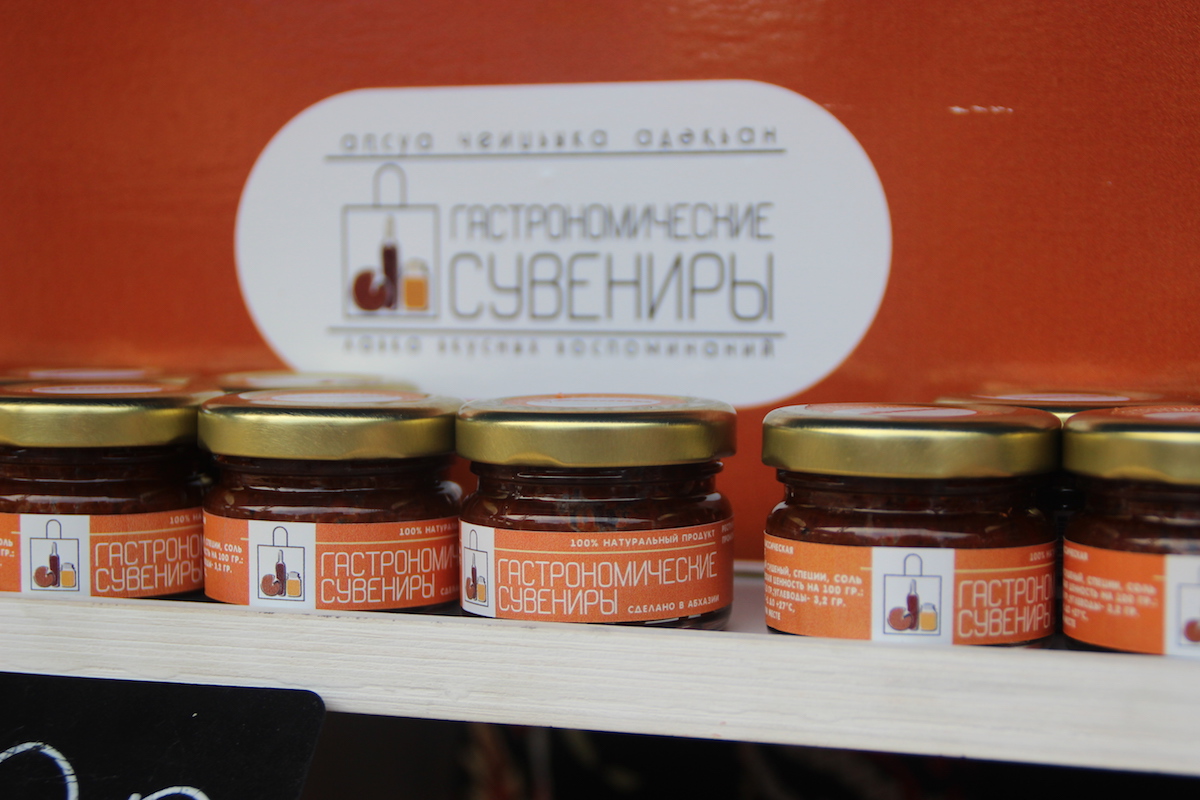Food festival in Abkhazia - Autumn Fair photo report

Around 20 local farmers have brought their produce to the Autumn Fair in Abkhazia. The fair is held on the platform of the abandoned Guma Railway Station in Sukhum.
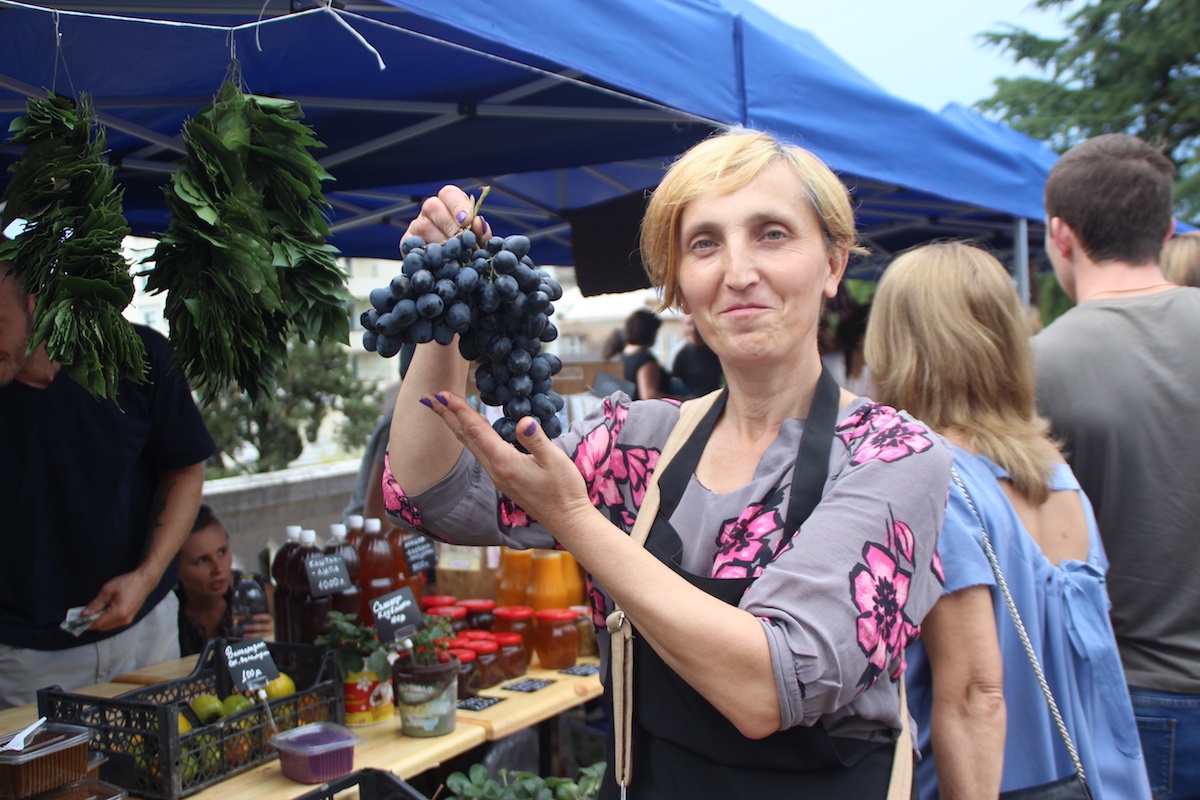
Nato Mikava
Nato Mikava is from Mziuri village in the Gali region. She has brought her grapes to sell, in addition to adjika, fig syrup, knitted hats and baskets.
“I don’t know what this plant is called, but I pick it by the swamp and then I use it to make bags, wallets, baskets… all kinds of things. It’s a way for me to unwind after working in the garden.”
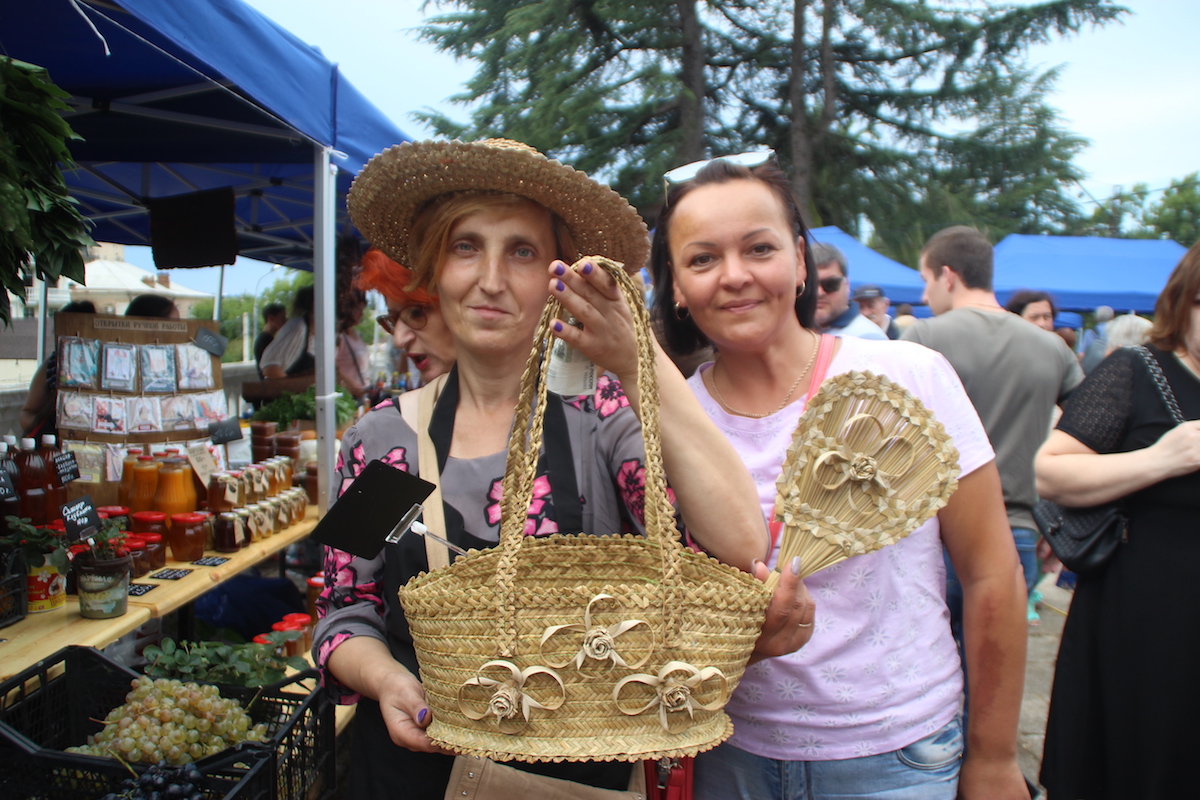
The United Nations Development Programme (UNDP)
The market is taking place for the second time. As was the case last year, it was organised with the help of the UNDP. All were welcome to participate, and every merchant received a free stand after registering.
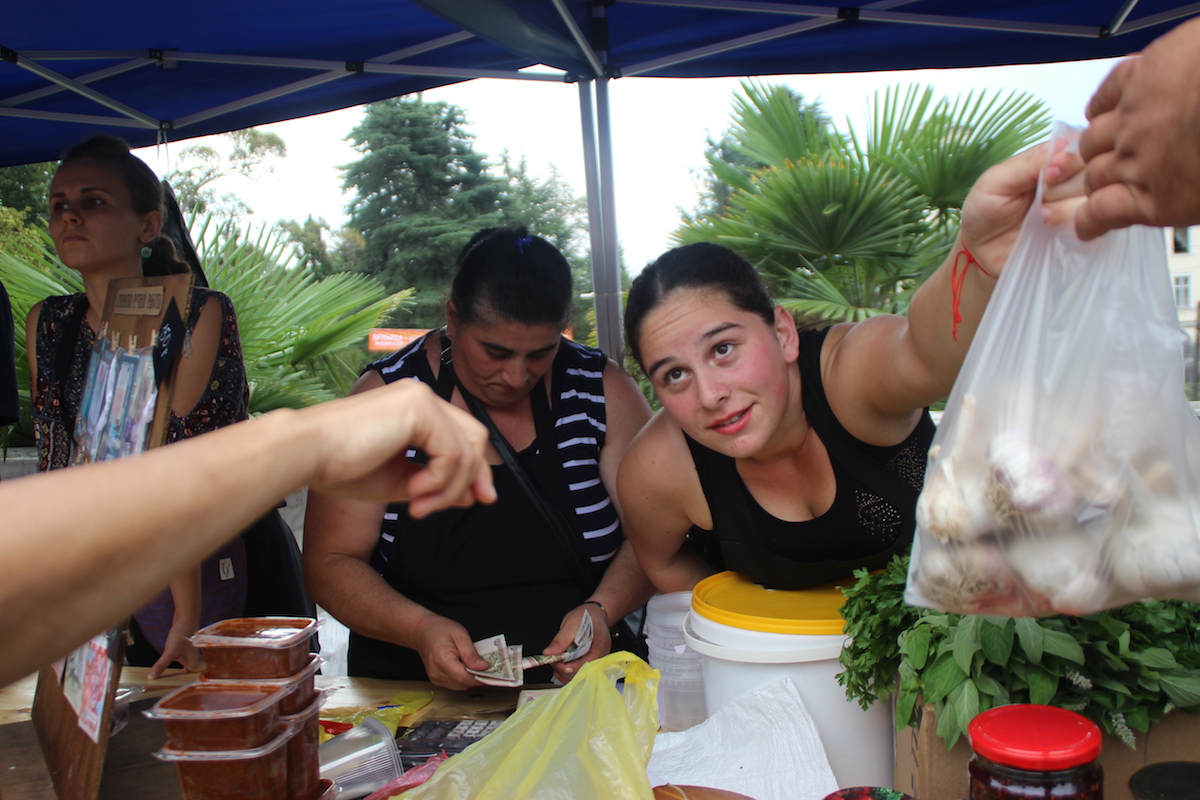
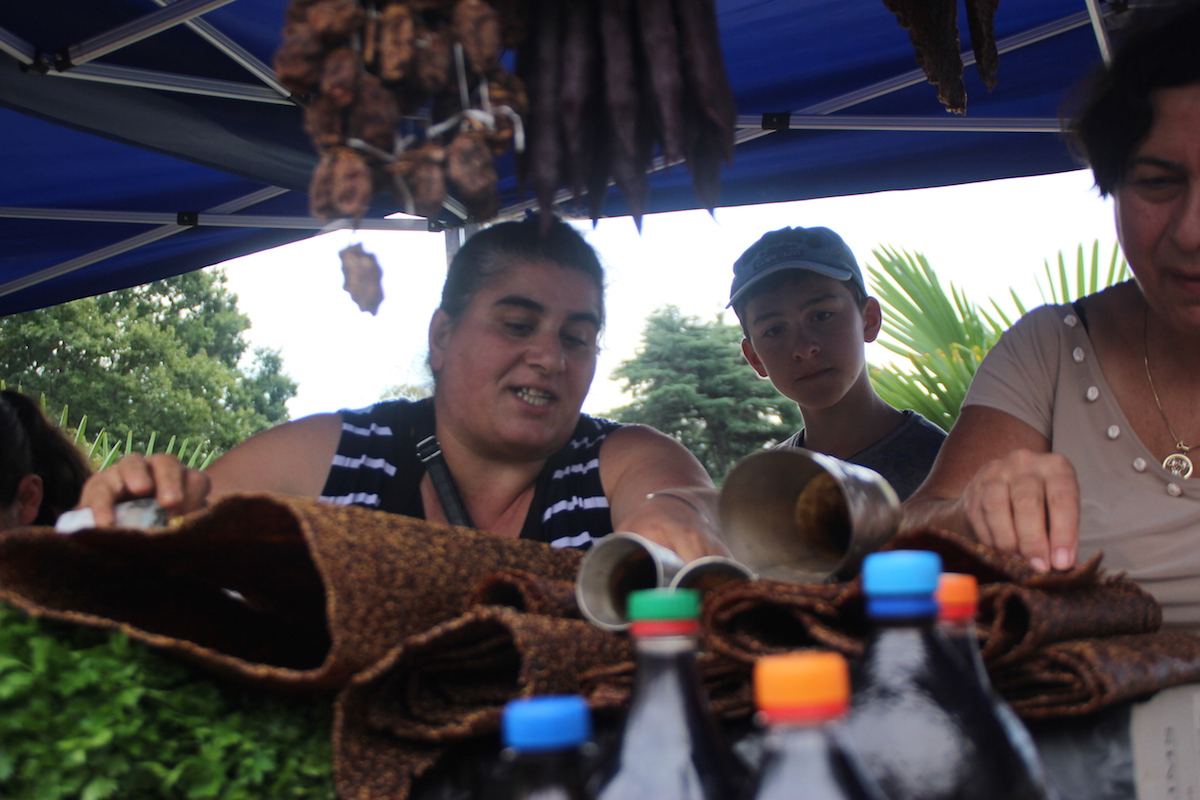
Deniza Djgerenaya
“The stink bug caused less damage this year because we poisoned them. We were given the chemicals [to do so] for free, and it really helped. Here, you see? Look at how big these nuts are [the stink bug didn’t damage them at all].”
I asked Deniza if one could make decent money working in agriculture in Abkhazia. She assured me that it is possible, but you have to work from sunrise to sunset, without breaks or weekends.

Astanda Khashba
Astanda Khashba’s garden in Pakuash village was less lucky. This is the third year in a row that she hasn’t been able to harvest figs, and she lost a ton of nuts.
“The stink bug didn’t get to everything this year at least, but the hazelnuts were badly damaged. I made some preserves, filled the pantry, and what was left I’ve brought to the market.”
Astanda says that making jars of preserved goods is her hobby, but that she doesn’t try to make money from it.
“In order for a product to get off the shelves, you need nice labels, advertising and a place to sell. I have neither the strength nor the resources for any of this, so I participate at fairs for the pleasure of it, but the rest of the time I’m not engaged in selling.”
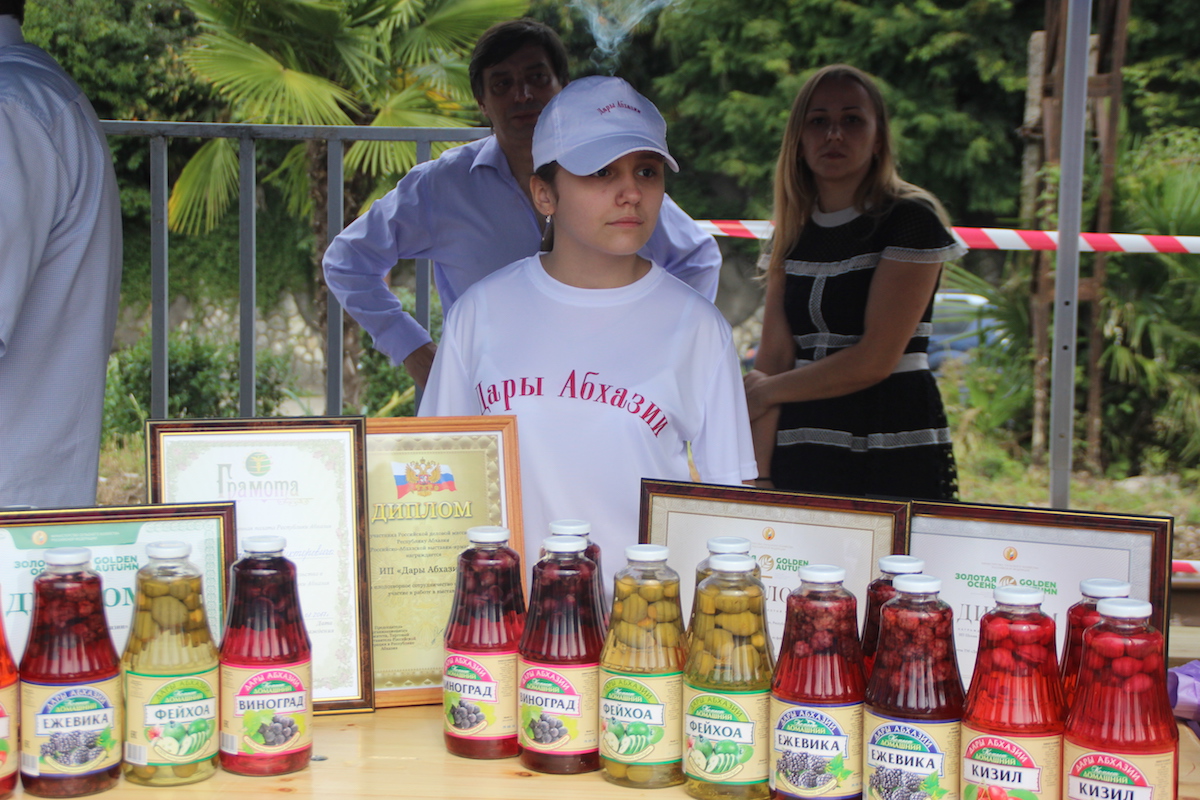
Gifts of Abkhazia
The Gifts of Abkhazia company is engaged in manufacturing jams, juices and other such goods. So far, their produce is only for the domestic market, but they plan to begin exporting their goods to Russia in the near future.
“For that we need a certain amount of produce in our warehouse. If a customer sends in a request, we must meet it entirely – so far we aren’t producing enough for that. We don’t have the resources in order to produce much in a short period of time,” says Eldar Shokhin, director of the company.
Gifts of Abkhazia has requested a loan from the Ministry of Economy.
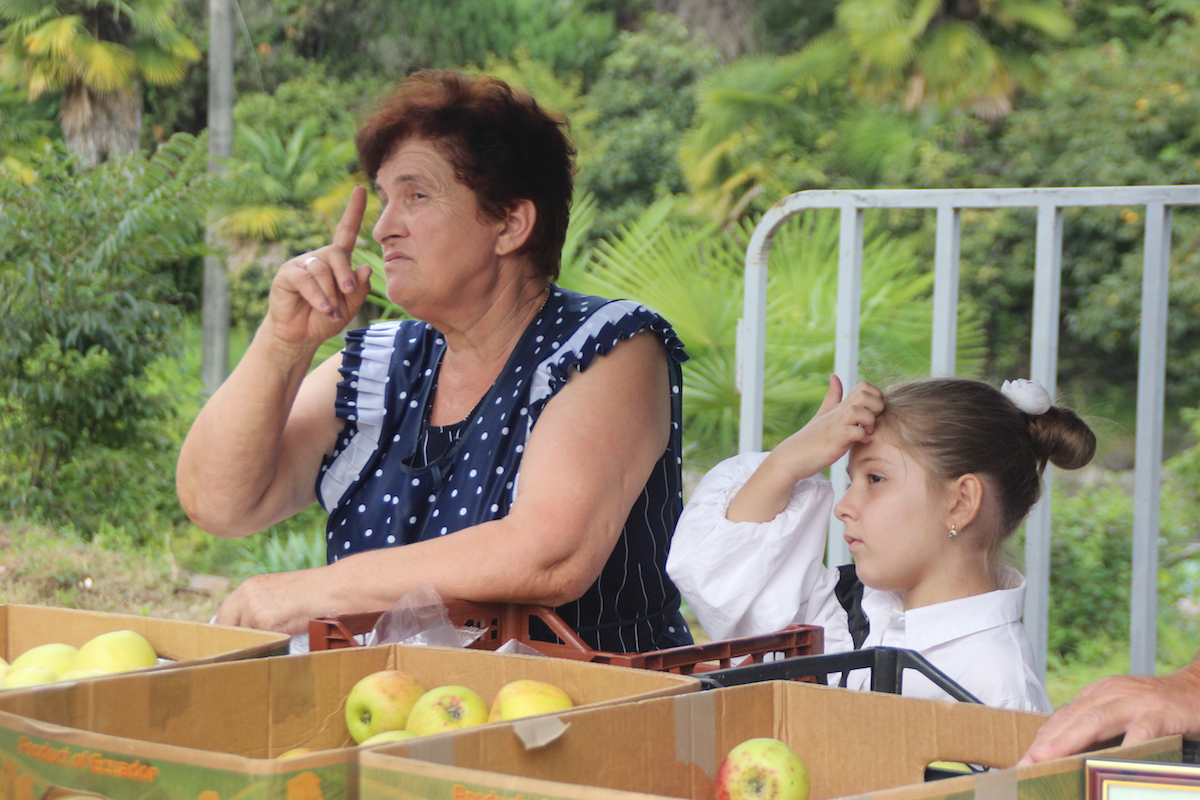
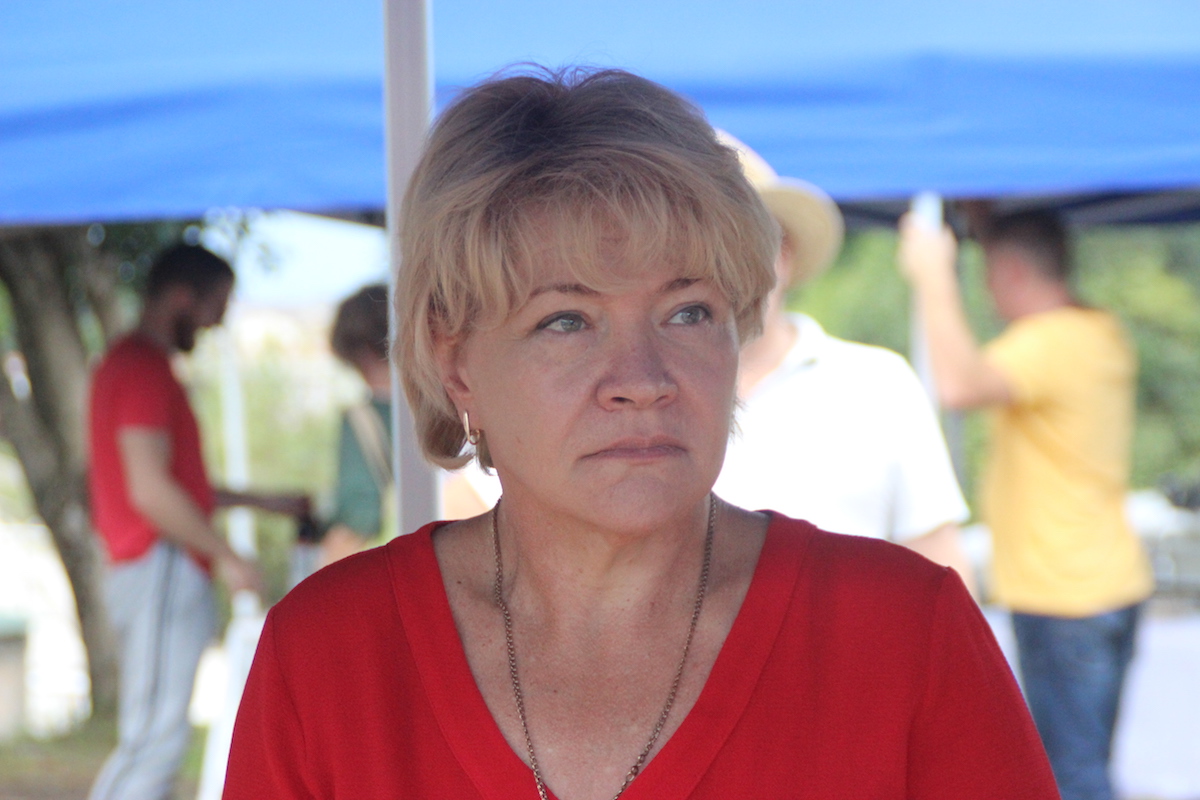
Tatyana Akhmetshina
“Weddings are our clients, so to say,” says Tatyana Akhmetshina, an employee of the Abkhaz Fairytale beer production company.
Beer brewer Vladimir Mironov says that he has been making light and dark beers for the same restaurant for about a year and a half.
“Our beer is mostly sold from the tap in summer, but this winter we plan on bottling it.”
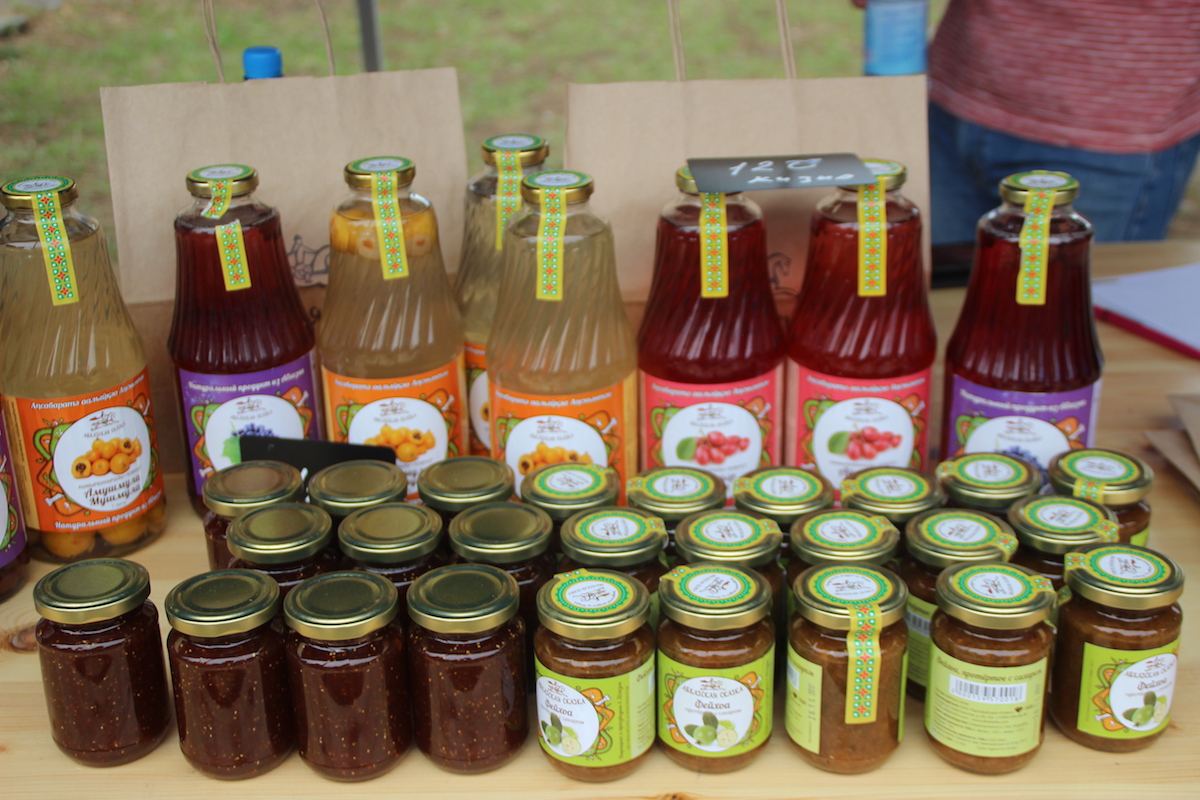
Irina Usova
Irina Usova makes soap and other mixes for baths.
“I sell my soap for the most part over the internet – Instagram does it all [for you]. It’s not easy to sell things here in Abkhazia [by the unit]. Renting [a shop] is too expensive, and advertising isn’t effective.”
“It is difficult to produce in Abkhazia,” says Irina. “It is difficult to find the ingredients you need, difficult to get them delivered, and all of this negatively affects your business plans.”

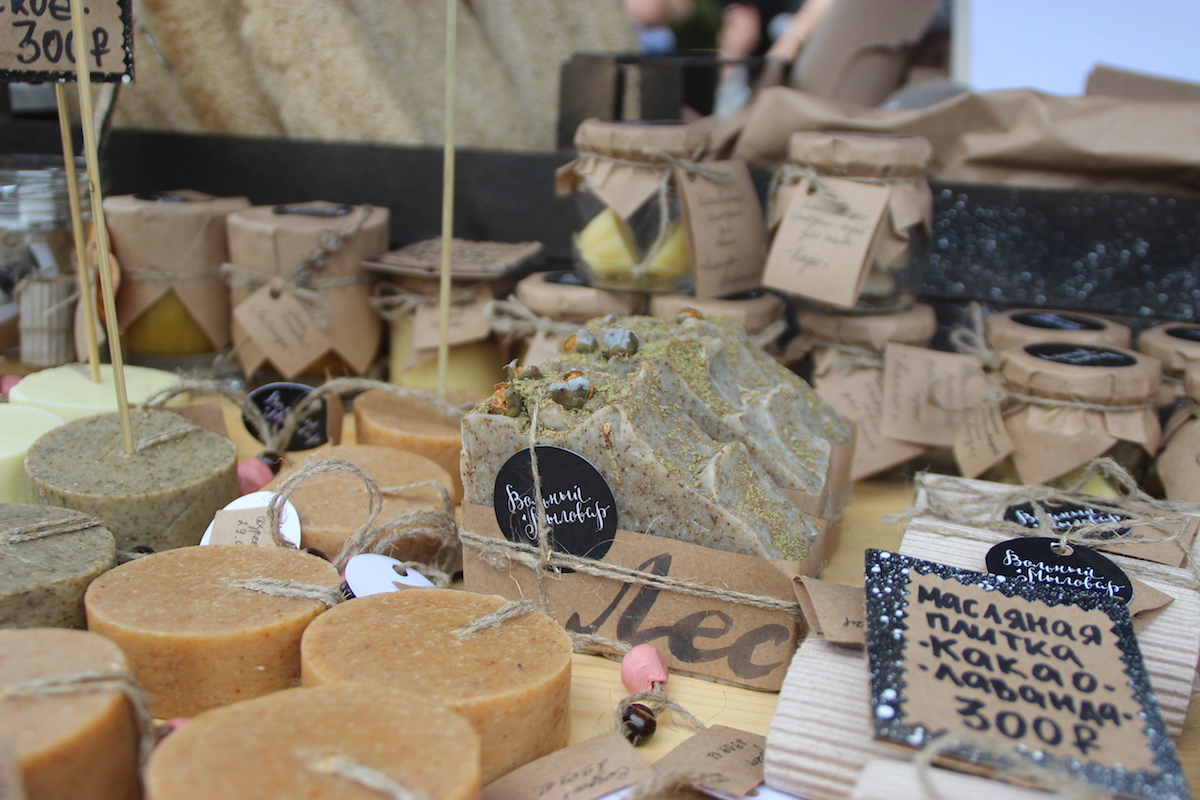
Shiitake mushrooms
Rare shiitake mushrooms were also sold at the market. To see them in their dried form in such quantities at a market is a rare opportunity – you do not usually see them at markets in Abkhazia.
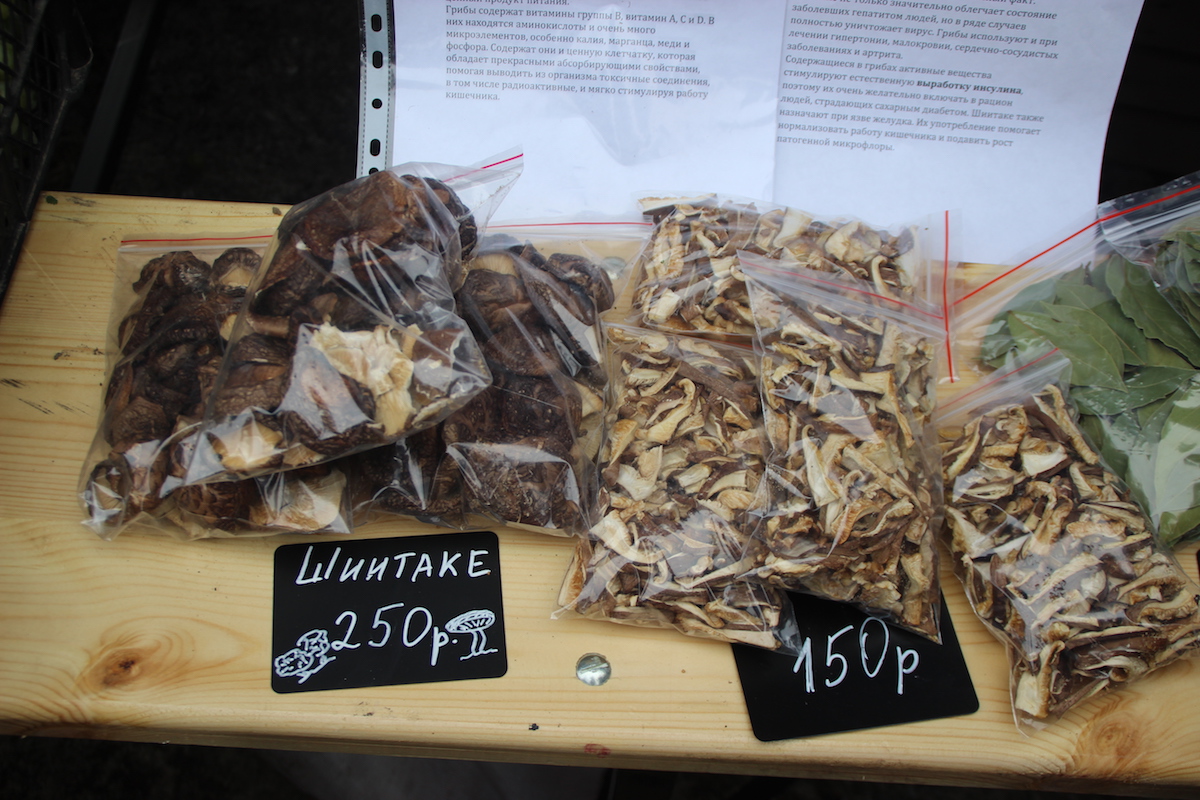
Yulia Maksimova
The mushrooms are grown in the Atara-Armyanskaya vilage. Yulia Maksimova bought mushroom spores, and then started growing the mushrooms on wooden stalks. She now sells them on the internet. Her buyers are mostly in Russia.
“People don’t know about these mushrooms in Abkhazia and they don’t buy them. However, abroad they’re really popular. True, it’s difficult to send large batches, but it is more profitable than teaching the locals about these mushrooms. There’s no tradition of gathering or growing mushrooms here, not even the ones that simply grow in the forest.”
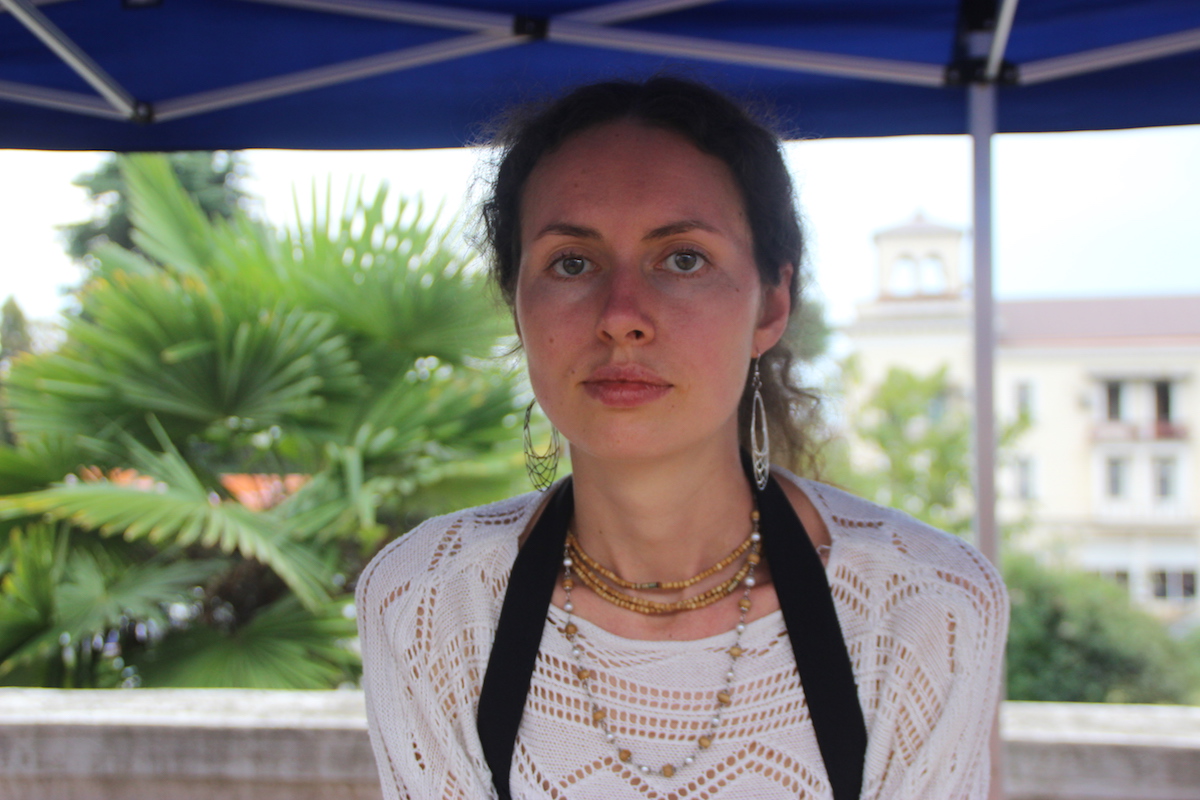
The next fair will be held next year, although everyone that we asked said that they would come here every weekend.
